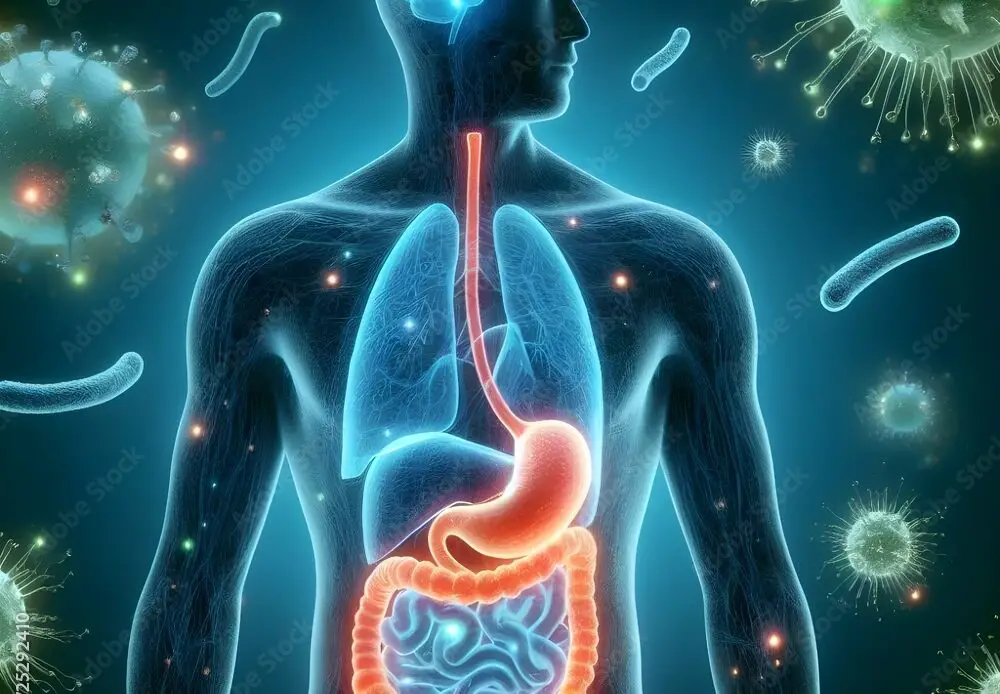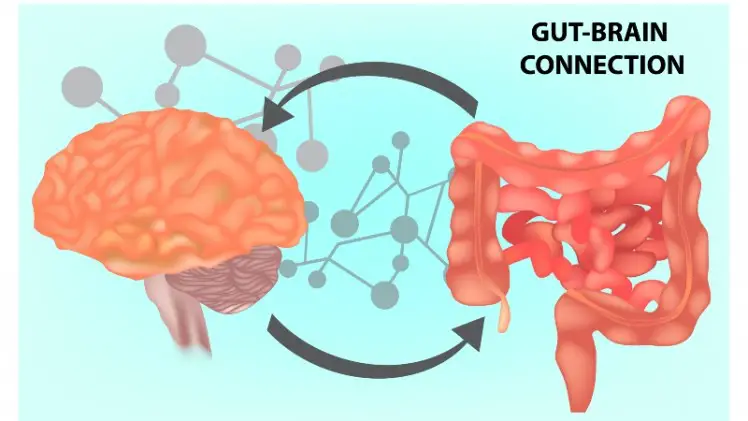Understanding the intricate relationship between stress and gut health is essential for overall well-being. This article delves into how stress affects our gut and vice versa, offering insights and practical tips for maintaining a healthy balance.
Understanding Stress
Stress is a natural response to challenging situations, triggering the body’s fight-or-flight mechanism. It can be categorized into acute stress, which is short-term, and chronic stress, which persists over a longer period. Common causes of stress include work pressures, financial difficulties, and personal relationships.
The Gut: Your Second Brain

Your digestive system is often called the ‘second brain’ because it contains millions of nerve cells, or neurons, that line the gut and release crucial messengers known as neurotransmitters. These neurotransmitters help the gut communicate closely with the brain and central nervous system, potentially influencing our moods and emotions.
Gut bacteria play a vital role in producing some of these neurotransmitters, including serotonin, with 90% of it being produced in the gut. Although serotonin is commonly known as the ‘happy hormone,’ the serotonin produced in the gut can’t cross the blood-brain barrier, so it doesn’t directly affect mood. Instead, it helps regulate digestion and modulate immune function.
The gut-brain axis, a bidirectional communication system between the gut and the brain, highlights the importance of gut health.
The Science Behind Stress and Gut Health
When we experience stress, our body releases hormones like cortisol, which can disrupt the gut’s environment. This disruption can alter the balance of the microbiome, leading to digestive issues and inflammation. Chronic stress can exacerbate these problems, making it harder for the gut to function properly.
Hormonal Impact on the Gut
Cortisol and other stress-related hormones can disrupt the gut’s environment in several ways:
- Microbiome Balance: The gut microbiome consists of trillions of bacteria and other microorganisms that play a crucial role in digestion, immune function, and overall health. Stress can alter the composition and diversity of these microbial communities. Elevated cortisol levels can reduce the population of beneficial bacteria while allowing harmful bacteria to proliferate. This imbalance, known as dysbiosis, can lead to a range of digestive issues, including bloating, gas, and altered bowel movements.
- Gut Barrier Function: The gut lining serves as a barrier that controls what passes from the digestive tract into the bloodstream. Stress can increase the permeability of this barrier, a condition often referred to as “leaky gut.” This allows toxins, microbes, and undigested food particles to pass into the bloodstream, triggering an immune response and leading to inflammation.
- Motility and Digestion: Stress can affect the speed at which food moves through the digestive tract. Some people may experience slowed digestion, leading to constipation, while others may experience accelerated transit time, resulting in diarrhea. Both extremes can disrupt the normal absorption of nutrients and cause discomfort.
Stress and Its Effects on the Body
When we experience stress, our body undergoes a series of physiological changes known as the “fight-or-flight” response:
- Hormone Release: The adrenal glands release cortisol and adrenaline, increasing heart rate, blood pressure, and energy supplies.
- Immune System Suppression: Chronic stress can suppress the immune system, making the body more susceptible to illnesses.
- Digestive Disruption: Stress can alter gut motility and enzyme production, leading to symptoms like nausea, indigestion, and changes in bowel habits.
Symptoms of Poor Gut Health Due to Stress
Poor gut health influenced by stress can manifest in various ways. Common symptoms include:
- Digestive issues like bloating, gas, diarrhea, and constipation
- Mood changes such as anxiety and depression
- Fatigue and sleep disturbances
The Gut-Brain Axis: A Two-Way Street
The gut-brain axis is a communication network that links the emotional and cognitive centers of the brain with peripheral intestinal functions. This two-way street means that not only can stress impact gut health, but gut health can also influence our mental state. For instance, an unhealthy gut can contribute to increased anxiety and stress levels.
Stress-Induced Gut Disorders
Several gastrointestinal disorders are closely linked to stress, including:
- Irritable Bowel Syndrome (IBS): Characterized by symptoms like abdominal pain, bloating, and altered bowel habits.
- Inflammatory Bowel Disease (IBD): Includes conditions like Crohn’s disease and ulcerative colitis, which involve chronic inflammation of the digestive tract.
- Other gastrointestinal issues: Such as acid reflux and gastritis.
Lifestyle Factors Affecting Gut Health and Stress
Various lifestyle factors can influence both gut health and stress levels:
- Diet: A balanced diet rich in fiber, fermented foods, and low in processed foods supports gut health.
- Exercise: Regular physical activity can reduce stress and improve gut motility.
- Sleep: Quality sleep is crucial for managing stress and allowing the gut to repair and maintain itself.
Avoid foods that can harm your gut, such as high-sugar, high-fat, and heavily processed foods.
Mindfulness and Stress Reduction
Mindfulness practices can significantly reduce stress, benefiting gut health. Techniques include:
- Meditation: Helps calm the mind and reduce stress.
- Deep breathing exercises: Can activate the body’s relaxation response.
- Yoga: Combines physical postures, breathing exercises, and meditation, promoting overall well-being.
Probiotics and Prebiotics
Probiotics are live beneficial bacteria, while prebiotics are non-digestible fibers that feed these bacteria. Together, they support a healthy microbiome. Sources include:
- Probiotics: Yogurt, kefir, and supplements.
- Prebiotics: Garlic, onions, bananas, and asparagus.
Natural Remedies for Stress and Gut Health
Several natural remedies can help manage stress and improve gut health:
- Herbal teas and supplements: Chamomile tea and probiotics supplements.
- Essential oils: Lavender and peppermint oil can promote relaxation and ease digestive discomfort.
- Acupuncture and other alternative therapies: Can reduce stress and support gut health.
When to See a Doctor
It’s important to seek medical advice if you experience severe or persistent symptoms. Diagnostic tests such as stool tests, blood tests, and endoscopies can help determine the cause of your gut issues. Treatment options may include medication, dietary changes, and stress management techniques.
Preventive Measures
To maintain a healthy gut and manage stress, consider the following preventive measures:
- Balanced lifestyle: Regular exercise, a healthy diet, and adequate sleep.
- Regular check-ups: Monitoring your health with regular medical visits.
- Mental health care: Prioritizing mental well-being through therapy or stress-reducing activities.
Stress Management Techniques
Effectively managing stress is key to maintaining both mental and gut health. Here are some techniques to help you manage stress:
Exercise Regularly
Engaging in regular physical activity can significantly reduce stress levels. Exercise releases endorphins, which are natural mood lifters. Aim for at least 30 minutes of moderate exercise, such as walking, cycling, or swimming, most days of the week.
Practice Mindfulness and Meditation
Mindfulness and meditation help center your thoughts and reduce the impact of stress. Start with just a few minutes a day of focused breathing or guided meditation to see benefits.
Connect with Others
Social support is crucial in managing stress. Spend time with family and friends, or consider joining a support group. Talking about your stressors with someone you trust can provide relief and new perspectives.
Set Realistic Goals
Setting achievable goals can reduce the pressure and stress of overwhelming tasks. Break larger projects into smaller, manageable steps and celebrate your progress along the way.
Time Management
Effective time management can prevent stress from building up. Prioritize tasks, use planners or digital tools to organize your schedule, and make sure to set aside time for relaxation and hobbies.
Adequate Sleep
Quality sleep is essential for stress management. Establish a regular sleep routine, avoid screens before bedtime, and create a restful sleeping environment to ensure you get 7-9 hours of sleep per night.
Healthy Eating
A balanced diet supports both mental and physical health. Ensure your meals include plenty of fruits, vegetables, lean proteins, and whole grains. Avoid excessive caffeine and sugar, which can exacerbate stress.
Seek Professional Help
If stress becomes overwhelming, seeking professional help from a therapist or counselor can be beneficial. Therapy provides tools and strategies to manage stress more effectively.
Supplements and Nutrients for Gut Health
| Supplement | Benefits | Sources | Additional Notes |
|---|---|---|---|
| Probiotics | Maintain a healthy gut microbiome Improve digestion Enhance immune function | Yogurt Fermented vegetables Supplements | Different strains have specific benefits Consider diverse sources for a balanced gut microbiome |
| Omega-3 Fatty Acids | Anti-inflammatory properties Benefit gut health Reduce stress Improves mood | Fish oil Flaxseeds Chia seeds | Essential fatty acid Important for brain health May reduce symptoms of depression |
| L-Glutamine | Supports gut lining integrity Helps with stress-related gut issues | Supplements Meat Eggs | May aid in muscle recovery Useful for individuals with leaky gut syndrome |
| Vitamin D | Supports immune system Linked to gut health | Sunlight Supplements Fortified foods | Deficiency linked to various health issues Check levels before supplementing |
| Magnesium | Relaxes muscles Promotes calmness Supports digestion | Green leafy vegetables Nuts and seeds Supplements | Important for many bodily functions May help with sleep issues |
Certain supplements and nutrients can support gut health, especially when stress takes a toll:

Probiotics
Probiotics are beneficial bacteria that help maintain a healthy balance in your gut microbiome. You can take probiotics as supplements or consume probiotic-rich foods like yogurt and fermented vegetables.
Omega-3 Fatty Acids
Omega-3 fatty acids, found in fish oil and flaxseeds, have anti-inflammatory properties that can benefit gut health. They may also help reduce stress and improve mood.
L-Glutamine
L-Glutamine is an amino acid that supports the integrity of the gut lining. It can be particularly helpful for those experiencing gut issues related to stress.
Vitamin D
Vitamin D plays a role in maintaining a healthy immune system, which is closely linked to gut health. Regular sunlight exposure and supplements can help maintain adequate vitamin D levels.
Magnesium
Magnesium helps relax muscles and can promote a sense of calm. It also supports proper digestion and can be beneficial for those experiencing stress-induced digestive issues.
Integrative Approaches to Gut Health and Stress

Integrating multiple approaches can be effective in managing both stress and gut health. Here are some integrative strategies:
Holistic Nutrition
Adopt a holistic approach to nutrition by focusing on whole, unprocessed foods. Include a variety of fruits, vegetables, lean proteins, and healthy fats in your diet.
Mind-Body Practices
Incorporate mind-body practices such as yoga, tai chi, and qigong, which combine physical movement with mental focus and relaxation techniques.
Herbal Medicine
Herbal remedies like chamomile, valerian root, and ashwagandha can help reduce stress and support gut health. Consult with a healthcare provider before starting any new herbal treatments.
Acupuncture
Acupuncture, an ancient Chinese medicine practice, can help alleviate stress and improve digestive function. It involves inserting thin needles into specific points on the body to balance energy flow.
Building Resilience
Building resilience helps you better handle stress and maintain gut health. Resilient individuals are able to adapt to challenges and recover from setbacks more effectively. Here are some tips for building resilience:
Positive Mindset
Cultivate a positive mindset by focusing on your strengths and past successes. Practice gratitude and look for the silver lining in difficult situations.
Flexibility
Being flexible and open to change can help you adapt more easily to stressful situations. Develop problem-solving skills and remain open to new solutions and ideas.
Self-Care
Prioritize self-care activities that nourish your body and mind. This can include hobbies, relaxation techniques, and spending time in nature.
Support Network
Build a strong support network of family, friends, and professionals who can provide assistance and encouragement during challenging times.
Understanding the connection between stress and gut health is crucial for overall well-being. By managing stress through lifestyle changes, mindfulness practices, and a balanced diet, you can support your gut health and improve your quality of life.
Frequently Asked Questions
How quickly can stress affect gut health? Stress can impact gut health almost immediately by altering gut motility and increasing inflammation, but chronic effects can develop over weeks or months.
Can improving gut health reduce stress? Yes, improving gut health can positively impact the brain, potentially reducing stress and anxiety levels due to the gut-brain axis.
What are the best foods for gut health? Foods rich in probiotics like yogurt and kefir, high-fiber foods like fruits and vegetables, and prebiotic foods like garlic and onions are excellent for gut health.
How can I tell if my gut health is improving? Improved digestion, regular bowel movements, better mood, and increased energy levels are signs of improving gut health.
Are there any specific exercises that help both stress and gut health? Yes, exercises like yoga and regular moderate-intensity workouts can reduce stress and support healthy gut function.
References
- Exercise and Stress Reduction
- Mayo Clinic Staff. (2019). Exercise and stress: Get moving to manage stress. Mayo Clinic. Retrieved from Mayo Clinic
- Harvard Health Publishing. (2018). Exercising to relax. Harvard Medical School. Retrieved from Harvard Health
- Mindfulness and Meditation
- Social Support
- Cohen, S. (2004). Social relationships and health. American Psychologist, 59(8), 676-684. Retrieved from APA PsycNet
- Harvard Health Publishing. (2021). The health benefits of strong relationships. Harvard Medical School. Retrieved from Harvard Health
- Setting Realistic Goals
- American Psychological Association. (2019). How to Set Achievable Goals. Retrieved from APA
- Locke, E. A., & Latham, G. P. (2002). Building a practically useful theory of goal setting and task motivation. American Psychologist, 57(9), 705-717. Retrieved from APA PsycNet
- Time Management
- Mind Tools. (n.d.). Time Management. Retrieved from Mind Tools
- American Psychological Association. (2019). Time management tips. Retrieved from APA
- Adequate Sleep
- National Sleep Foundation. (2020). How Much Sleep Do We Really Need? Retrieved from Sleep Foundation
- Harvard Health Publishing. (2019). The importance of sleep for health. Harvard Medical School. Retrieved from Harvard Health
- Healthy Eating
- Harvard T.H. Chan School of Public Health. (n.d.). The Nutrition Source: Healthy Eating Plate. Retrieved from Harvard T.H. Chan
- Mayo Clinic Staff. (2020). Nutrition and healthy eating. Mayo Clinic. Retrieved from Mayo Clinic
- Professional Help for Stress
- American Psychological Association. (2017). Stress Management: How to Strengthen Your Social Support Network. Retrieved from APA
- Mayo Clinic Staff. (2020). Stress management: Know your triggers. Mayo Clinic. Retrieved from Mayo Clinic
- Supplements and Nutrients for Gut Health
- Harvard Health Publishing. (2018). Probiotics: What you need to know. Harvard Medical School. Retrieved from Harvard Health
- National Institutes of Health. (2019). Dietary Supplement Fact Sheet: Omega-3 Fatty Acids. Retrieved from NIH
- Mayo Clinic Staff. (2020). Glutamine. Mayo Clinic. Retrieved from Mayo Clinic
- National Institutes of Health. (2018). Vitamin D. Retrieved from NIH
- Office of Dietary Supplements. (2021). Magnesium: Fact Sheet for Consumers. National Institutes of Health. Retrieved from NIH
- Integrative Approaches
- Harvard Health Publishing. (2020). The role of holistic nutrition in promoting health. Harvard Medical School. Retrieved from Harvard Health
- National Center for Complementary and Integrative Health. (2020). Yoga: In Depth. Retrieved from NCCIH
- Mayo Clinic Staff. (2018). Herbal supplements: What to know before you buy. Mayo Clinic. Retrieved from Mayo Clinic
- National Center for Complementary and Integrative Health. (2021). Acupuncture: In Depth. Retrieved from NCCIH

